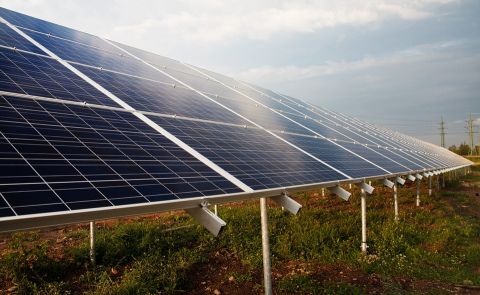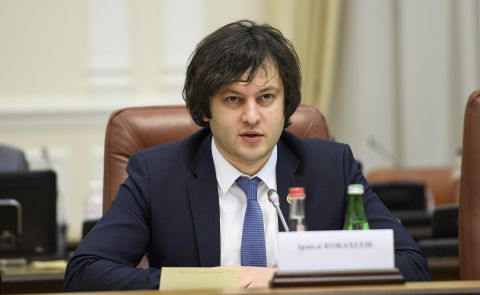
The “Operation Peace Spring” and the Caucasus
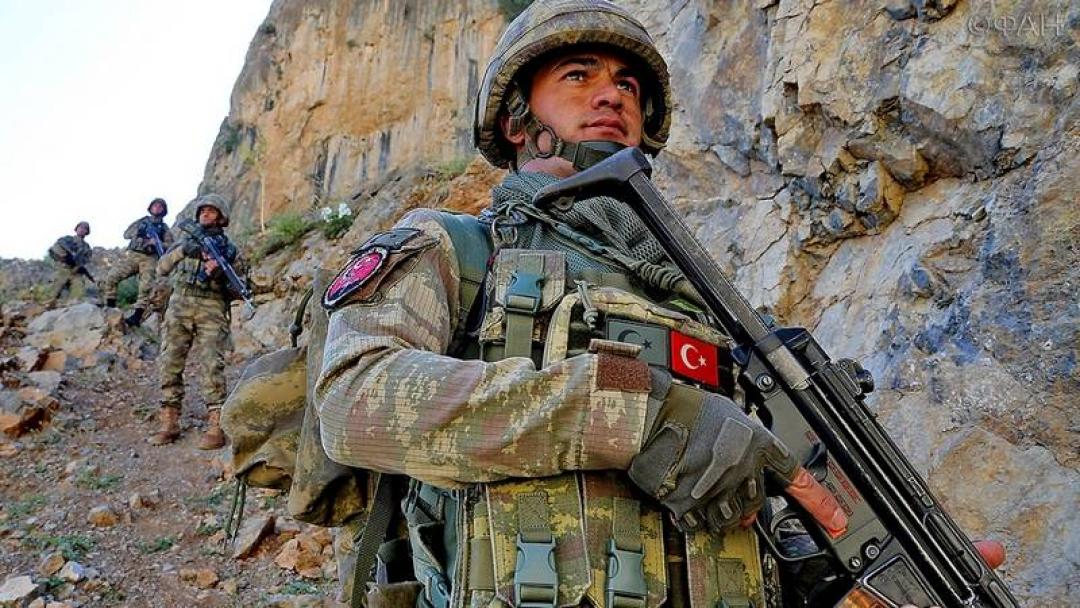
On 9 October, Turkish President Recep Tayyip Erdogan announced to launch a military operation in Northern Syria. “Our mission is to prevent the creation of a terror corridor across our southern border, and to bring peace to the area. The operation “will neutralize terror threats against Turkey and lead to the establishment of a safe zone, facilitating the return of Syrian refugees to their homes,” he tweeted. The military undertaking had been dubbed under the name “Operation Peace Spring.”
Turkey invoked her right of self-defence, as recognized in Article 51 of the UN Charter, “to counter an imminent terrorist threat.” Erdogan is planning to resettle two million Syrians in a 30-km (19-mile) wide proposed safe zone in Syria stretching from the Euphrates River to the Iraqi border, including Manbij. The main goal of the operation is to eliminate the forces of the Islamic State of Iraq and Levant (ISIS) and the People's Protection Units (YPG), armed wing of the Kurdistan Workers Party (PKK) which are considered to be an international terrorist group by Turkey, the US and the EU.
There are four fronts of Operation Peace Spring: First is the military front on the ground, particularly developments unfolding in the Tell Abyad-Ras al-Ayn-M4 rectangle. Second is the optics front: the perceptions of millions closely watching the operation in the United States and the European countries in particular. Third is the diplomatic front mainly shaped by the strategic preferences of capitals having stakes in Northeast Syria such as Damascus, Washington, Moscow, Tehran, Jerusalem, European capitals, Baghdad and Erbil. Fourth is the domestic political front in Turkey.
The launch of the operation was perceived very differently by a variety of states and international actors. Caucasus Watch takes a look at how Azerbaijan, Armenia and Georgia have responded to the launch of the operation.
Armenia
The Armenian state officials and institutions condemned the operation, voicing concern of regional security hazards and possible human losses.
“Armenia condemns the military invasion by Turkey in [Northeast] Syria, which would lead to deterioration of regional security, losses among civilians, mass displacement and eventually to a new humanitarian crisis. The plight of ethnic and religious minorities is of particular concern. This military invasion also creates an imminent threat of identity based grave and massive violations of human rights. Armenia calls for effective international measures aimed at halting this military invasion, preventing mass atrocities and protecting the population of Syria along the border with Turkey. Armenia supports the unity and sovereignty of Syria and urges to refrain from military offensive against Syria and its people. Armenia will continue to provide humanitarian assistance to the friendly people of Syria on the ground,” read the statement of the Armenian MFA.
Another point of concern to Armenia is in regard to the Armenian citizens living in Syria. The MFA is already taking steps to move the Armenian community in Syria back to their country of origin. The spokesperson of the ministry Anna Naghdalyan stated that “around 3,000 Armenians are concentrated” in Qamishli and Al-Malikiyah who await to be moved back to Armenia.
Armenia’s Prime Minister Nikol Pashinyan also publicly condemned the operation. ″I would like to emphasize once again that the Republic of Armenia condemns the act of invasion. We are concerned over the situation, as we believe that the operation will increasingly [worsen] the humanitarian crisis in Syria. We call upon the international community to undertake active measures towards ending the unlawful operations and protecting the rights of… Syrian citizens, including the ethnic minorities,″ he said at the cabinet meeting. The Armenian government also decided to give Armenian citizenship to Syrian, Lebanese and Iraqi citizens who apply for it for the first time.
Pashinyan also held a phone conversation with Russian President Vladimir Putin on 12 October in order to discuss the situation in Syria. In this regard, it is also important to assess Russia’s position on the operation, as Russia is the closest political ally to Armenia. In a phone call ahead of the launch of the offensive, Putin urged Erdogan to “think carefully” before taking any action “so as not to harm overall efforts to resolve the Syrian crisis.” The Russian Minister of Foreign Affairs Sergej Lavrov stated that “Russia understands Turkey's concerns over its border security.” At the UN Security Council seating, which was held on 10 October, Russian officials urged for “restraint” and “direct dialogue” between Syria and Turkey. They also said that they were not prepared to sign off on the statement presented by the European countries to halt the military operation.
The Armenian Patriarchate in Turkey supported the military undertaking in comparison to the Armenian official standpoint. “We pray that Operation Peace Spring, which aims to end terrorism and ensure the security of the borders, will continue in accordance with its purpose and establish peace and security as soon as possible," said Archbishop Sahak Masalyan, head of the Armenian Patriarchate of Turkey's Spiritual Council. “Unfortunately peace is not always ensured through peaceful means... May God protect our country and our people from disasters with His merciful power,” he added.
Azerbaijan
The Republic of Azerbaijan expressed its support for the operation.
“Azerbaijan strongly condemns all forms and manifestations of terrorism and supports the efforts of the international community in the fight against terrorism. In this regard, we are confident that the operation “Peace Spring” by the [Turkish Armed Forces] will serve to eliminate the terror risks, return of the refugees to their homes, solution of the humanitarian problems and providing peace and stability within the territorial integrity of Syria, as it has been stated by the Government of Turkey,” read the statement of the Azerbaijani Ministry of Foreign Affairs.
The opposition in Azerbaijan also voiced its support for the operation. “We are confident that the quality of this operation will not give reason to launch any new campaigns against Turkey or put forward claims,” wrote Ilgar Mammadov, the chairman of the opposition Republican Alternative party on his Facebook page. It has also been reported that more than a thousand young Azerbaijanis filed applications to become volunteers in the Turkish army to participate in the operation.
Georgia (wider context)
The Georgian Ministry of Foreign Affairs or the Georgian top state officials have not stated their position on the operation so far. In order to understand why Georgia has not given any official response a wider political context needs to be assessed from Georgia’s standpoint. Georgia harbours close political and economic ties to Turkey (and Azerbaijan) on the one hand, while it actively pursues EU and NATO membership on the other.
Georgia’s relations with Turkey are at strategic level. Turkey has been Georgia’s biggest trade partner since 2007 and among the leading investor countries to Georgia. In accordance with the protocol signed in 2011, Turkish and Georgian citizens are able to travel to each other’s country with their national identity documents. The two countries aim to further develop its bilateral relations, with the establishment of High Level Strategic Cooperation Council (HLSC) mechanisms. Turkey strongly supports territorial integrity of Georgia and does not recognize the so-called independence of Abkhazia and South Ossetia. Turkey hopes that these conflicts will be resolved with Georgia's territorial integrity and sovereignty through peaceful means. Turkey also supports Georgia's efforts for integration with Euro-Atlantic organizations. Georgia is also engaged in a trilateral format of security and economic cooperation with Azerbaijan and Turkey.
Another important aspect to bear in mind on Georgia’s behalf is the fact that Syria was the latest country which recognized the independence of the Georgian breakaway regions of Abkhazia and Tskhinvali (South Ossetia). “In gratitude for the assistance against terrorist aggression, the Syrian Arabic Republic has decided to establish diplomatic relations with the republics of Abkhazia and South Ossetia,” read the statement of the Syrian MFA from 29 May 2018, which resulted in Geogria and Syria severing diplomatic ties. The separatist Abkhazian authorities have even its own personal ties with Syria, as they are in the process of repatriating the Abkhaz diaspora from Syria. Many in Georgia believe that Syrian-Abkhaz are being settled in homes left behind by the thousands of ethnic Georgians who fled war in the territory in the 1990s.
The EU and its most influential member states are in general opposed to the operation. The President of the European Commission Jean Claude Juncker told the European Parliament he recognised Turkey had “security concerns” along the border. But he warned the military action would not lead to a “good result”, saying a political solution was the only way to end the Syrian conflict. “I have to say if the Turkish plan involves the creation of a so-called safe zone, don’t expect the European Union to pay for any of it,” he stated. The EU High Representative for Foreign and Security Policy Federica Mogherini reaffirmed Juncker’s statement adding that the Turkish military action risked “protracted instability in Northeast Syria, providing fertile ground for the resurgence of Daesh (ISIS).” She also highlighted that keeping the captured ISIS fighters in Syria secure is “imperative in order to prevent them from joining the ranks of terrorist groups.” Germany, France, the UK, Belgium, and Poland called a session of the UN Security Council on 10 October and urged Turkey to “cease the unilateral military action.”
NATO chief Jens Stoltenberg issued his own statement urging “restraint” and pointing out the risk of worsening instability in Syria, though he did acknowledge Turkey had “legitimate security concerns” in the area. “It’s important to avoid actions that may further destabilise the region, escalate tensions, and cause more human suffering,” Stoltenberg said at a news conference in Rome, in remarks released by his office. After meetings on 11 October with Turkish officials in Istanbul, including President Erdogan, Stoltenberg stopped short of condemning Ankara's move, but said that the global efforts to put a stranglehold on ISIS could be "jeopardised" if the operation continues. “Turkey is a great power in this great region, and with great power comes great responsibility,” he said.
The position of the USA as the leading NATO country is stricter in comparison to the organization. US President Donald Trump on Wednesday called the incursion into Northern Syria a “bad idea”. He insisted that Washington “does not endorse this attack”, despite having withdrawn US troops from the area. Trump also said that he would “obliterate” Turkey’s economy if it went too far. "Failure to play by the rules, to protect vulnerable populations, failure to guarantee that (the Islamic State) cannot exploit these actions to reconstitute will have consequences," the US envoy to the UN, Kelly Craft, told reporters in New York.
Relevance for the North Caucasus
Turkey’s military operation could also have an impact on the autonomous Russian federal republics in the North Caucasus. According to a report from the International Crisis Group, some North Caucasians fight in Iraq and Syria not only for ISIS, but also for Jabhat al-Nusra. Some fight in rebel groups that are not affiliated with either and are mostly under Chechen commanders. Due to their reputation as fearless fighters, Chechens are often promoted quickly to the role of commander for small groups, or to second- and third-rank positions in ISIS. The region’s Salafis emphasise that religion is a key motivation for North Caucasians to join violent jihad in Syria.
At their peak, North Caucasian militants formed a significant portion of jihadist combat strength in Syria. Vladimir Putin estimated in February 2017 that 4,000 Russian citizens were fighting in Syria, which is in line with many independent estimates. The largest group of these fighters are from Dagestan, with the republic’s authorities stating 1,200 Dagestanis were fighting in the ranks of ISIS. Chechens come from two points of origin: roughly 600 from Chechnya proper and another 2,400 traveling from diasporas in Europe. Official sources stated that 100 Ingush are believed to have entered Syria as militants, with another 175 from the republic of Kabardino-Balkaria.
On 13 October, Putin spoke in an interview with Arab broadcasters about the new constitution that is being drawn up for Syria. He believes it should guarantee the rights of all ethnic and religious groups. He said that Syrians “interact positively” with Russian military police and military stationed in the country and that most military police in Syria are Muslims from Russia’s North Caucasus region. Russia has been a key ally of Syrian President Bashar al-Assad.
Putin also stated that “Syria’s internal problems can only be solved once the country is free of terrorists”, adding that Moscow is supporting Damascus to ensure that extremists never reach Russia’s borders. “We still remember what happened in Russia’s North Caucasus region not that long ago”, Putin said referring to the bloody conflicts in Chechnya and making the case for protecting Russian borders from terrorism spill-over effects. “We could not allow militants to move to former Soviet republics. We do not have hard borders or a visa regime with them. We could not allow militants to infiltrate Russia from there,” he concluded.
See Also

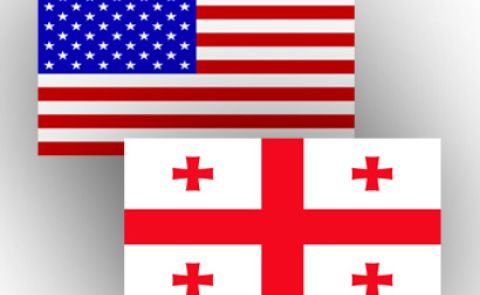
Kobakhidze Meets US Senator Daines to Discuss Bilateral Relations
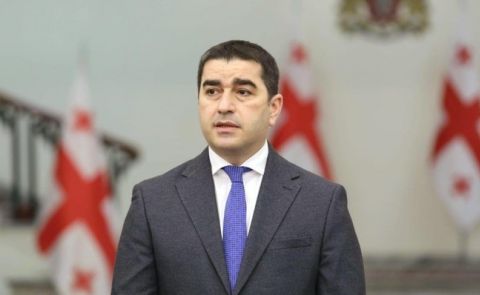
Georgian Speaker Condemns Embassy Travel Warnings as Economic Attack
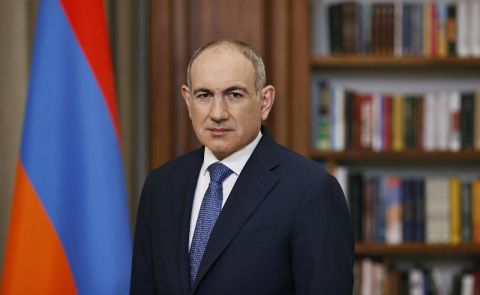
Political Crisis Deepens Between Armenian Government and Apostolic Church After Pashinyan’s Remarks
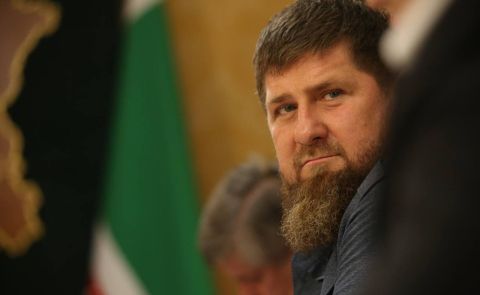
Ramzan Kadyrov Awards Title to Ingush Businessman
